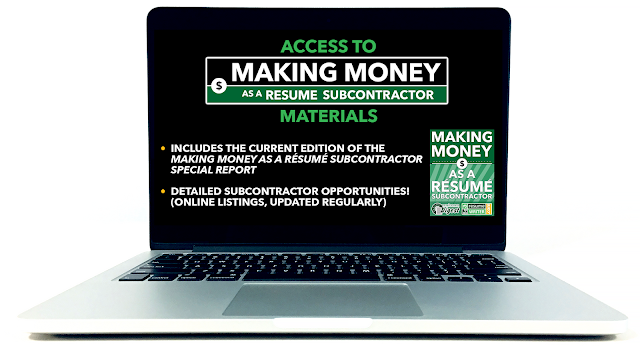In my “From the Editor” column from the January/February 2002 issue of Resume Writers’ Digest newsletter, I talked about the difference between being a freelancer and an entrepreneur.
Twenty years later, it’s still a great topic.
As a resume writer, do you want to be a freelancer or an entrepreneur? (There is a difference.)
Here’s the original column:
Many self-employed professional resume writers consider themselves to be entrepreneurs when, in fact, they are more likely freelancers. Does it matter? Changing how you define yourself might create more opportunities, lower your stress level — or both.
Without resorting to the dictionary definitions of each term, let me try to explain the difference. Entrepreneurs are trying to build and sustain a growth-oriented enterprise. It is their goal to grow. These are the resume writers who hire subcontractors, affiliate with major career sites, and aim to make more than $150,000 from resume writing.
Then there is a freelancer. The freelancer wants to derive a living from resume writing — but not necessarily be the biggest or the best. The truth is, most resume writers are freelancers. They contract directly with clients and/or write for others as a subcontractor. They can be home-based, office-based, or both.
The key difference is that they don’t take on more work than they can handle themselves. If they start to get busy, they raise their rates, or refer prospective clients to a colleague. They don’t start looking for subcontractors, or more office space.
Acting like an entrepreneur when you’re really a freelancer can cause you many sleepless nights. You read about some of the biggest names in the business and dream up strategies to conquer the town — or your chosen niche. But if you realized that goal and suddenly had dozens of new clients each day, would you be happy working with them? You wouldn’t necessarily have to become a resume mill, but if you enjoy total immersion with a select few clients each week, you’ll have to adapt your style to emphasize volume.
How you view yourself — freelancer, entrepreneur, or entrepreneur-in-training — will determine how you manage your time, market your services, and run your business.
Take a look in the mirror and answer this question: Which are you — freelancer or entrepreneur?
A note from 20 years later:
The results of the Resume Writers’ Digest Industry Survey suggest most resume writers are freelancers, working with 2-3 new projects per week. But the good news is, if you want to be an entrepreneur and expand your work with subcontract resume writers, it’s easier than ever. You can work with writers around the country — or around the world — from your home. No need to “look for more office space.”
Looking to work with subcontract resume writers? Contracting writers can get a free listing in the Directory of Subcontract Opportunities, one of the “Making Money as a Resume Subcontractor,” resources available to Bronze members of BeAResumeWriter.com. Submit your information here.














